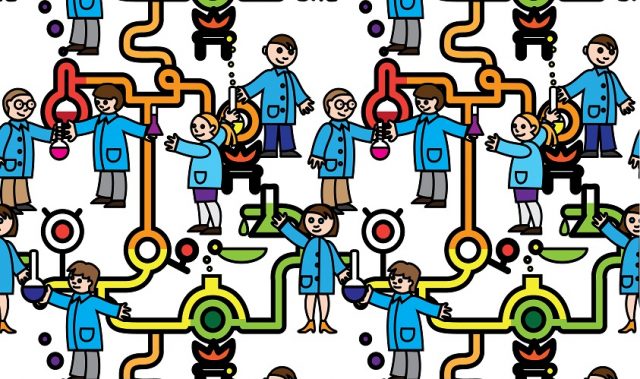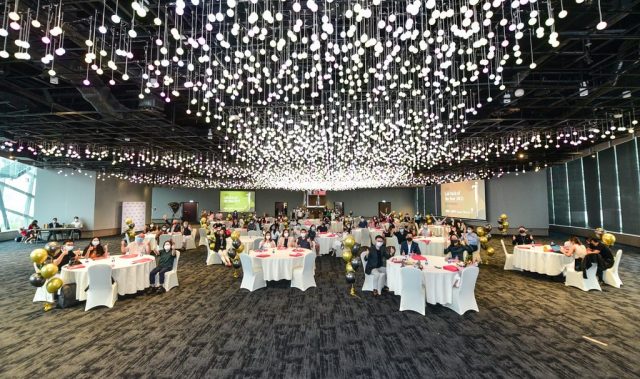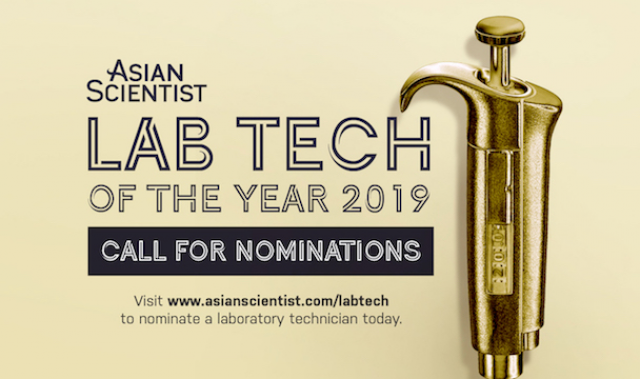
AsianScientist (Aug. 17, 2018) – Humans are funny creatures. We crave recognition and praise—kids chase after their next gold star, athletes race for their next medal and scientists pursue their next paper. For the latter, however, authoring a paper entails more than just glory and fame. Numerous career-changing decisions are based off a scientist’s publication list—grants, promotions, professional memberships, just to name a few.
But deciding who deserves a spot on the author list can be a nuanced and tricky task. Asian Scientist Magazine speaks to three leading scientists from the region to find out how they navigate the sometimes-treacherous terrain of authorship.
- Tread the line carefully
- Remember it’s not a free ride
- Recognize differences between disciplines
- Address the elephant in the room
- Play the long game
As anyone who has done research will tell you, science takes time, effort and money. Someone who wants to be an author on the paper must contribute at least one of these three things, and in substantial enough amounts.
“Authorship depends on how much resources you put into a research project, whether you spent a lot of time on it and whether you did a large part of the work,” says Benjamin Tee, an engineer from Singapore’s Agency for Science, Technology and Research.
‘Work’ encompasses conceptualizing the hypothesis or idea, designing and executing the experiments, analyzing the data and writing the manuscript. The first author is typically the person who carries out the bulk of the experiments, while the last author is usually the principal investigator who provides guidance and direction, ensuring the overall quality of the published findings.
Those who fall in between on the author list are the people who have helped in some way or another with the experiments, says Nethia Mohana Kumaran, a cancer researcher from Universiti Sans Malaysia.
“For example, it’s someone who designed the plasmids, someone who’s helped you with the bioinformatics, or someone who’s helped you with microscopy work.”
But if a collaborator just loans you a machine, one that is a third-party device rather than a patented prototype he or she invented, then an acknowledgement towards the end of the manuscript may suffice, says Kumaran.
Tee agrees. “In general, if it’s just a passing comment like ‘Oh, maybe you can try this,’ that’s not enough to be included in the author list.”
Authoring a paper is something to be proud of, and it shouldn’t be taken lightly. Having your name on a journal publication comes with great responsibility, says atmospheric chemist Vinayak Sinha from the Indian Institute of Science Education and Research in Punjab.
“The author is an expert,” says Sinha. “You are conveying to the rest of the world, through the paper, that you are someone who is developing expertise in a particular field.” If you’ve made only superficial contributions or have nebulous connections to the work, then you shouldn’t insist on being listed as an author, he says.
Furthermore, you need to be able to speak for the work you publish, to explain it in great detail if necessary and be able to defend its findings.
“If tomorrow you are asked to present that work before others and you have not done the work, you will be called out,” Sinha says. “Because people can make out whether someone has done the work or not… don’t ruin your reputation.”
Different fields of scientific inquiry also vary in their approach to authorship. Some disciplines, such as theoretical physics, can have hundreds, if not thousands, of authors on a single paper. For instance, in 2015, a paper on the Higgs boson was published by 5,154 scientists at the Large Hadron Collider at CERN in Switzerland, setting the record for the largest number of contributors to a single research article.
Earth and environmental science—Sinha’s research domain—is another example where multidisciplinary, cross-institutional collaborations are common.
“Particularly for big picture findings, one needs many collaborators,” explains Sinha. “It requires individual specialists to come together—someone who knows the physics of the atmosphere, someone who knows the chemical composition, someone who can provide chemical insights and so on—if they really want to undertake an earth system-level study.”
This is in stark contrast to other disciplines which tend to be more focused on individual topics of study that do not necessarily overlap with others.
“Organic chemists, for example, each work on specific molecules that they specialize in, which they synthesize and report experimental findings on,” says Sinha.
The issue of authorship is one that should be discussed openly, and sooner rather than later.
“I think there should be some kind of agreement between collaborators at the very early stage of drafting the manuscript so there won’t be any conflict later on,” says Kumaran.
This is especially important as many papers tend to be multidisciplinary these days, adds Tee.
“People tend to get a bit more territorial when submitting manuscripts to high impact journals, or when a revised manuscript is being considered for publication. If you don’t discuss authorship early, things break down and relationships go south,” he says. “So it’s good to be very communicative about authorship issues early on.
Nonetheless, it’s equally important to remember that things may change on the long road to publication. Some people may drop out of the project, while others may find they don’t have enough time to contribute in a meaningful manner.
“Authorship is always a dynamic process, not a static one,” says Tee.
Despite the best intentions, arguments over authorship can—and do—occur.
“I would be lying if I said that didn’t happen,” Sinha muses. “By nature, human beings always want to have due acknowledgment, and it’s not a wrong thing.”
When disagreements arise, he says, its usually because of a difference in perception of who played a bigger role in a study. The key is to sit down and talk things through with all parties involved.
“A lot of times it’s difficult to say who did more work,” acknowledges Tee. “But in general, there’s a rule of fairness—people know what is fair and what isn’t.”
Having said that, it’s important to always be cordial and “not burn any bridges in any form of negotiation”, Tee adds.
“You can choose whether to have a major dispute or not, but remember a scientific career tends to be really long… you never know, in the future, especially in the same field or adjacent fields, if someone may review your paper so it’s good to maintain good relationships.”
“Don’t focus too much on the short term,” Tee advises. “Maybe you get published in Science, but then a lot of people hate you for it… so in general, you have to think about whether you want to win the battle or the war.”
This article is from a monthly column called Beyond The Bench. Click here to see the other articles in this series.
———
Copyright: Asian Scientist Magazine; Photo: Shutterstock.
Disclaimer: This article does not necessarily reflect the views of AsianScientist or its staff.













